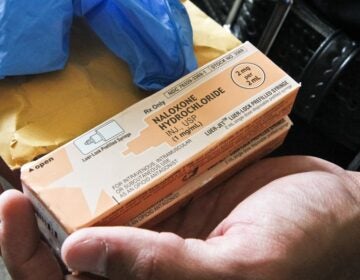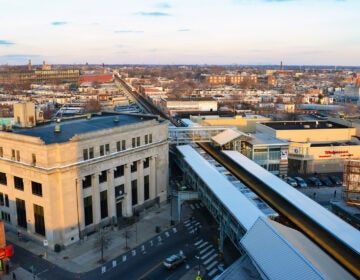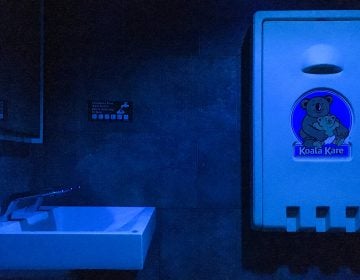Philadelphia lawsuit threatens to shut down Kensington clubhouse for addiction recovery
The city says The Last Stop violates its zoning by allowing some people to live there, and that it lacks a permit for meetings.
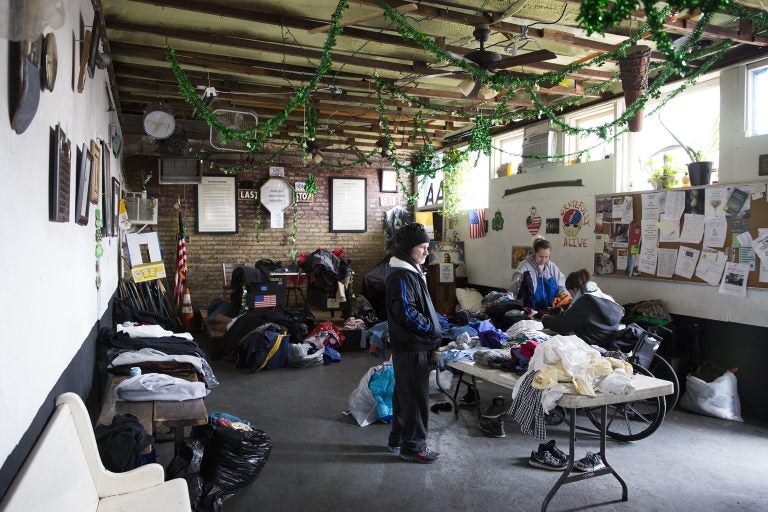
Lou (left) and Michelle (center) organize donated clothes so that community members can more easily pick through them on Feb. 17. The Last Stop is a recovery clubhouse that gives donated clothes to the community each weekend. (Rachel Wisniewski for WHYY)
Thirteen people in recovery from addiction to drugs and alcohol gathered in the meeting hall at The Last Stop for morning meditation.
They took turns talking about what has helped them stay sober. More than a few gave credit to the support they found at the well-known center in Philadelphia’s Kensington neighborhood that offers daily 12-step meetings.
“The love here is unbelievable,” Marlo Aulicino said. “This is where I feel comfortable, this is where I feel like home, this is where I can be myself.”
Aulicino said she was homeless and addicted to heroin on the streets of Kensington until The Last Stop took her in three years ago. She was among several people at last week’s gathering who said The Last Stop’s owner, Eddie Zampitella, had helped countless others over the past 20 years.
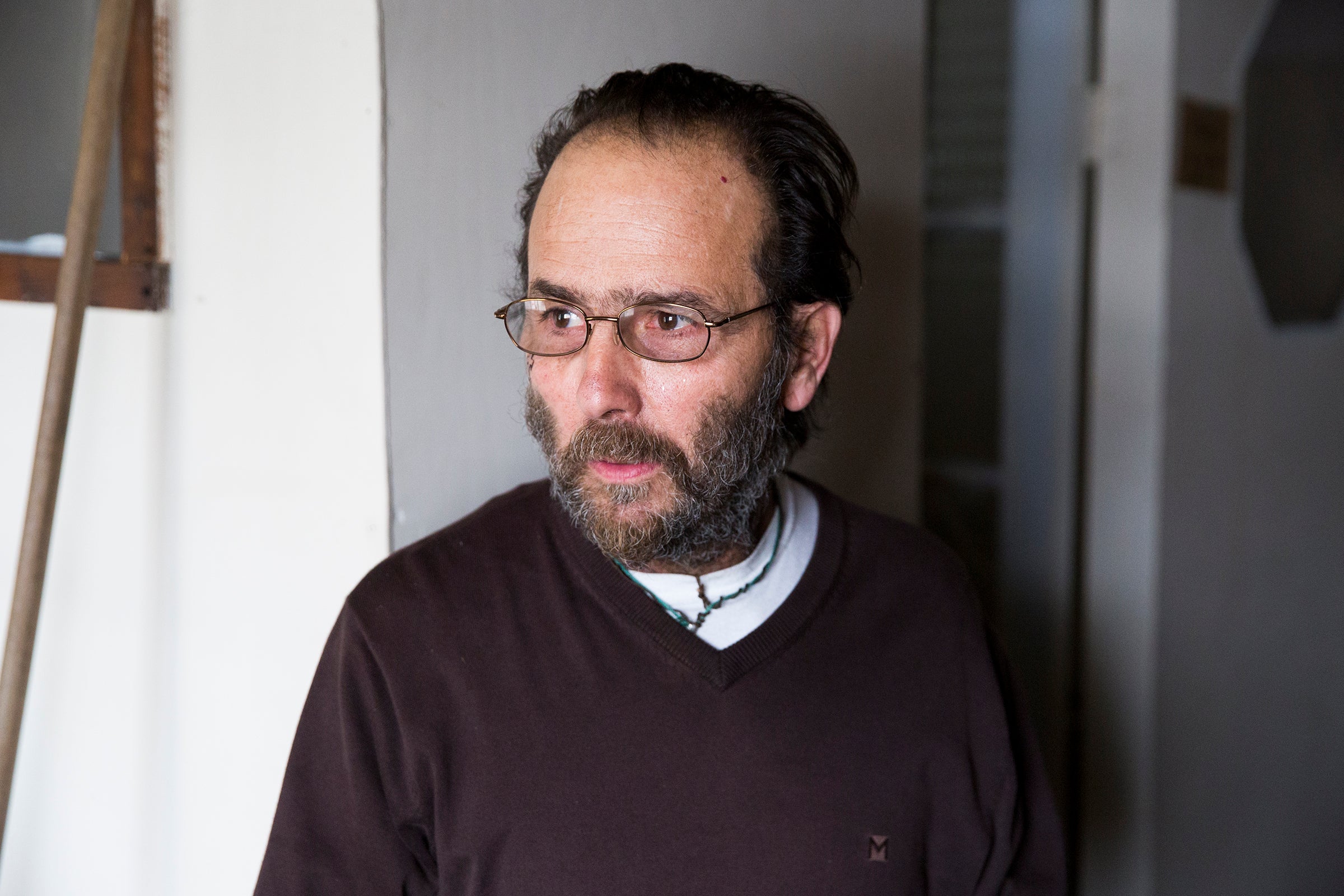
Despite that history of reaching out to desperate people struggling with addiction, the City of Philadelphia is bringing a lawsuit against The Last Stop that threatens to shut it down. The suit alleges violations of zoning and building codes found during an inspection by the Department of Licenses and Inspections in September 2017.
Zampitella’s supporters hope The Last Stop’s legacy will allow him to keep the doors open. It offers a rare place for those without money or insurance to get badly needed help, he said.
“It’s a crisis down here with the opiates,” Zampitella said. “Five people on this block since we’ve been here OD’d and died.”
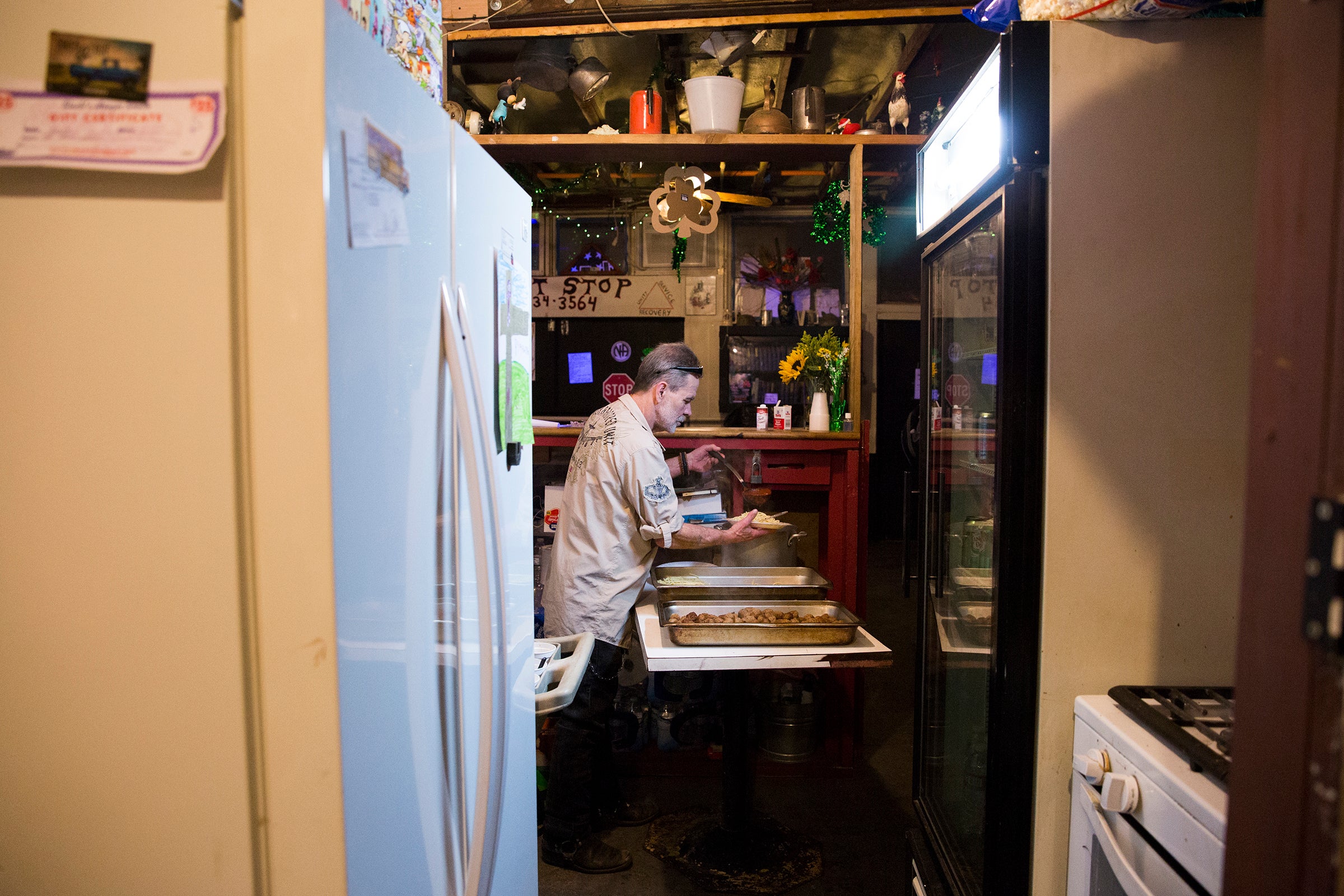
The Last Stop’s legal troubles stem from its move to 1810 E. Somerset St., which Zampitella acquired in 2017. His willingness to give some who are homeless a place to stay runs afoul of uses permitted under the location’s commercial zoning. The building also doesn’t have the certificate of occupancy required to host meetings.
Karen Guss, a spokeswoman for the city’s Department of Licenses & Inspection, said both violations raised significant safety concerns.
“Frankly, if a tragedy would occur at this property and the city had not taken this action, we would have failed in our responsibility to ensure the safety of the public and the individuals who visit that property,” Guss said.
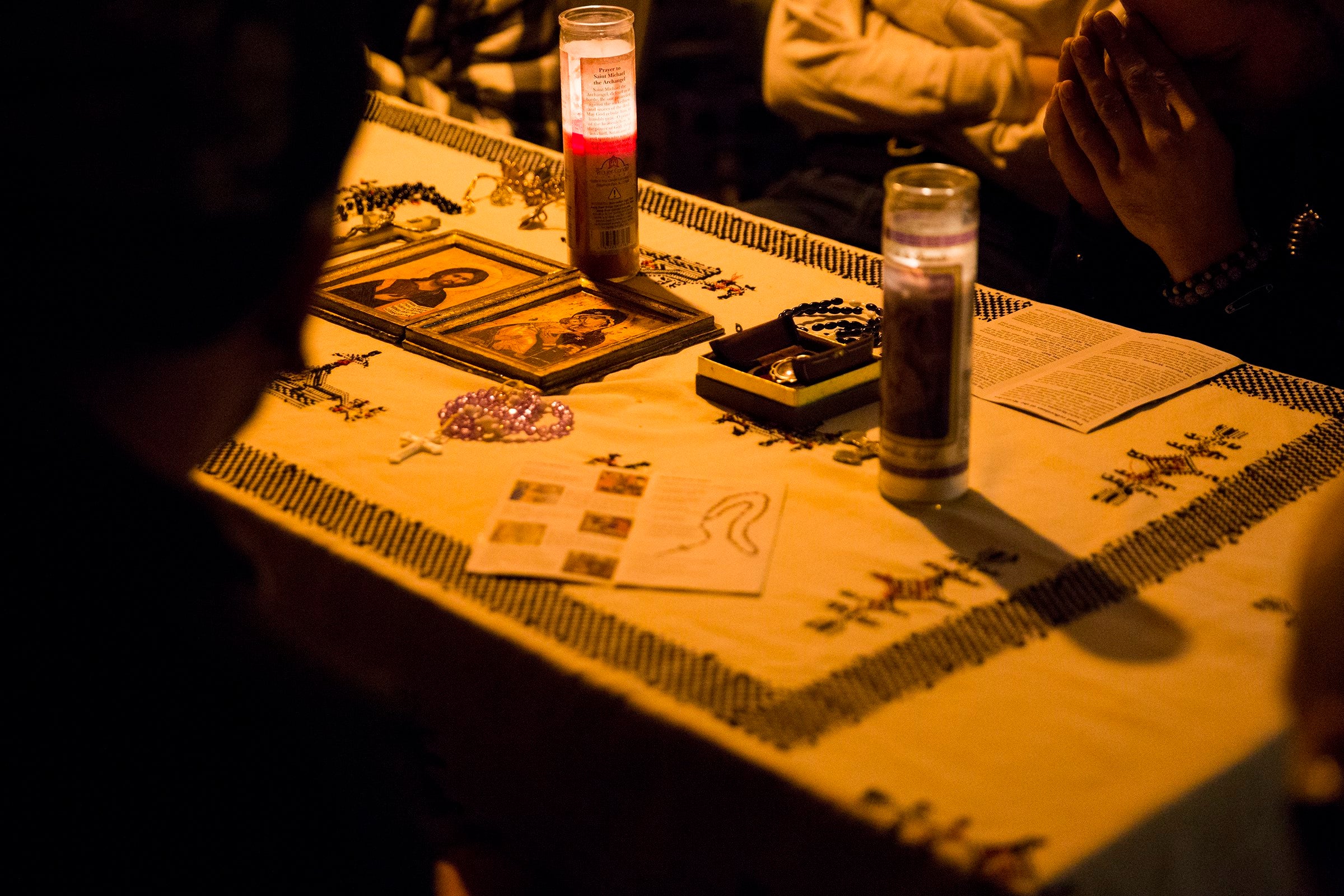
Neighbors have also complained about unruly crowds gathering outside the building, which is adjacent to a stop on SEPTA’s Market-Frankford El and one block away from an affordable-housing complex owned by New Kensington Community Development Corp.
New Kensington’s executive director, Felix Torres-Colon, said The Last Stop attracts people who act inappropriately and often use drugs outdoors there.
“It’s kind of a magnet, and has been pretty problematic for our residents,” he said.
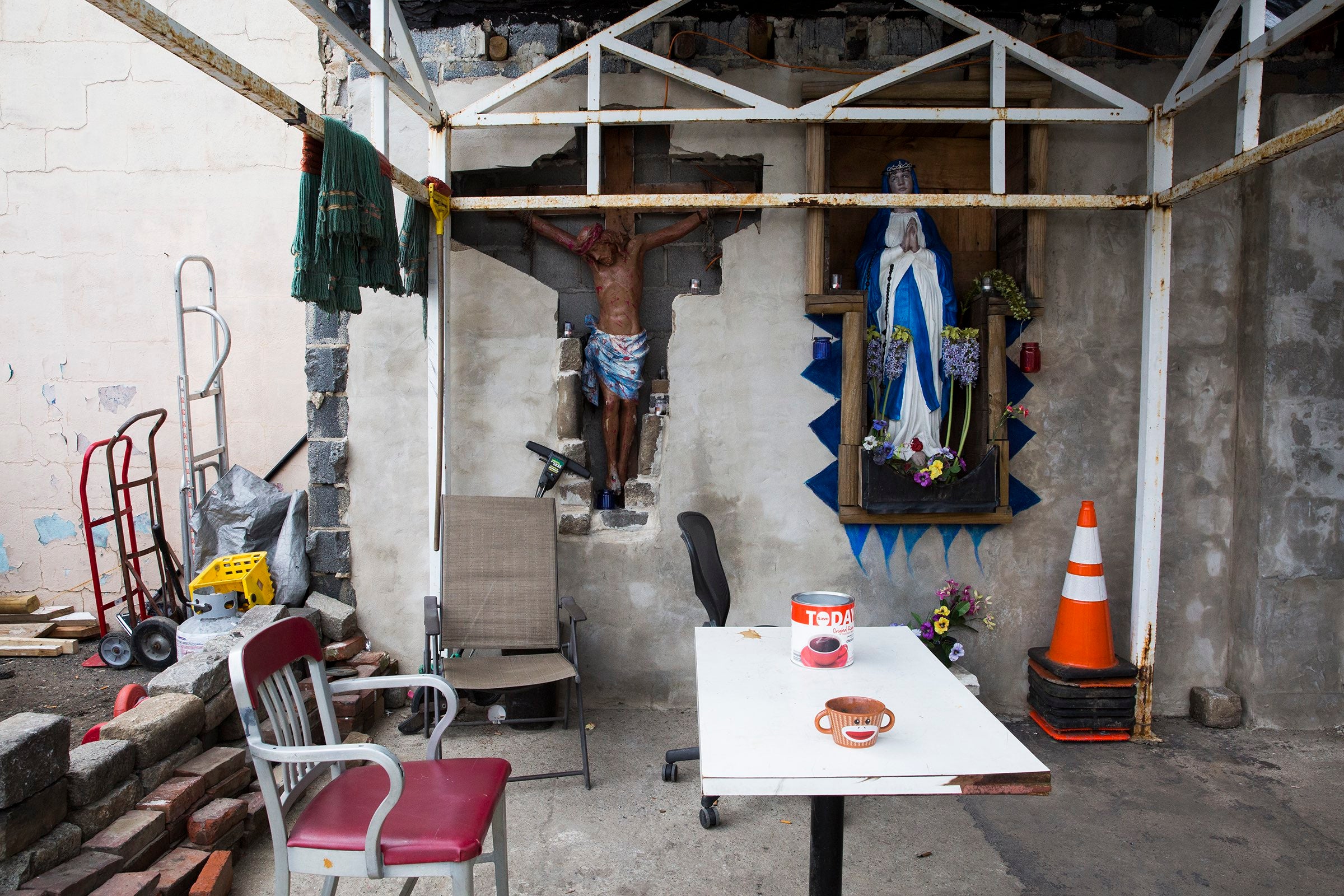
Zampitella said it’s unfair to blame The Last Stop for those crowds, saying they were present before his operation moved there.
The city’s lawsuit seeks an injunction requiring The Last Stop to correct the violations immediately, plus nearly $2 million in accumulated fines.
Jay Edelstein, an attorney for Zampitella and The Last Stop, said he is optimistic the recovery clubhouse will avoid that fate. Edelstein said that the city’s attorney has been open to cooperating on an agreement to keep The Last Stop open while it corrects the violations and that the city had an interest in keeping an addiction-recovery resource open.

“Our goal is to come into compliance, do what we need to do to keep the city happy, and at the same time help people get clean and sober and get some dignity and humanity back,” he said.
A hearing in the case is scheduled for March 12.
To continue allowing people to live in its building, The Last Stop would need community support to obtain a zoning variance. That could prove challenging in a neighborhood where residents are often opposed to new facilities providing addiction-recovery services.
“A lot of my residents feel that Kensington is suffering from the overabundance of services,” Torres-Colon said.
—
Editor’s note: This article has been updated to clarify the details of the injunction sought by the city.
WHYY is your source for fact-based, in-depth journalism and information. As a nonprofit organization, we rely on financial support from readers like you. Please give today.


